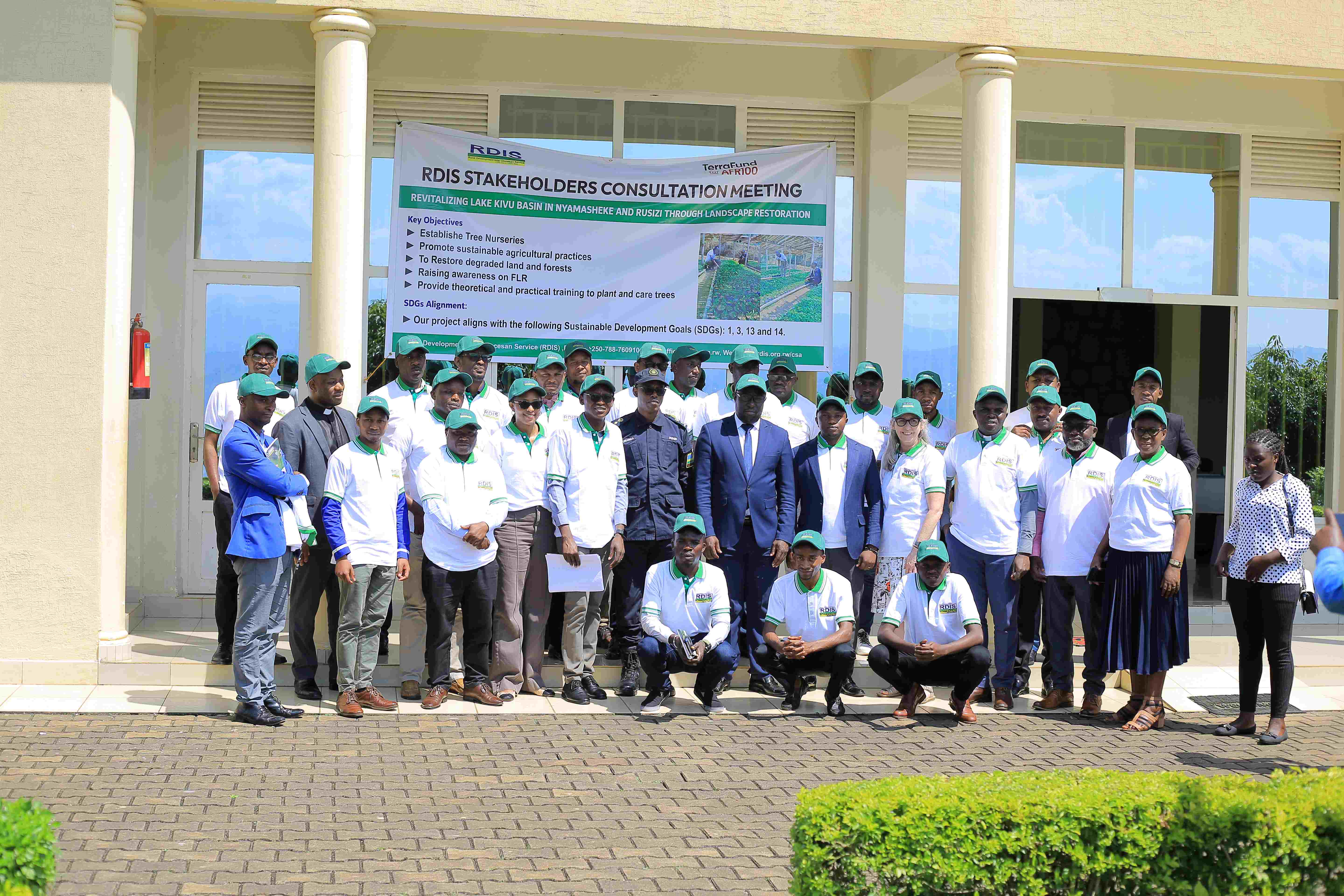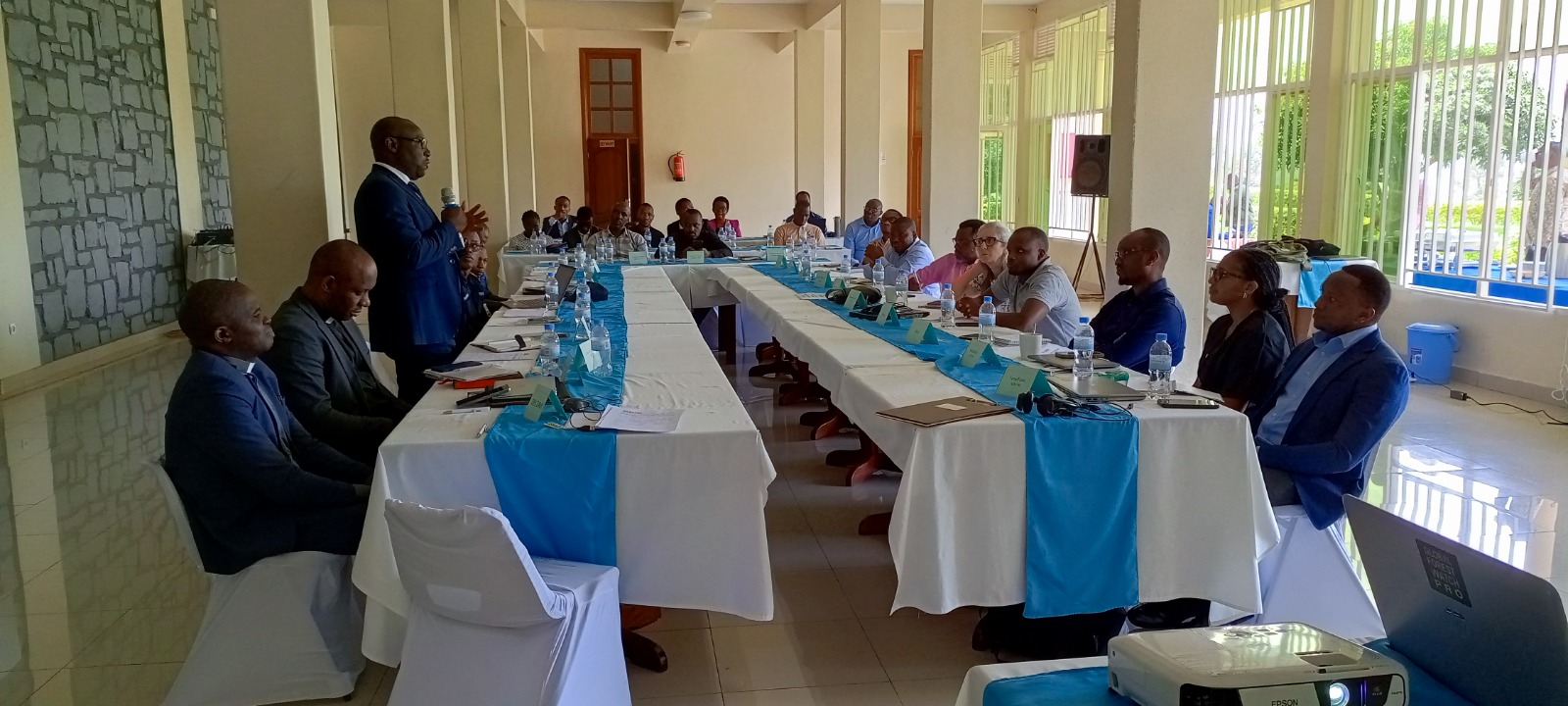
In an impactful gathering held at the Peace Guest House in Kamembe, Rusizi District on the 08th February 2024, stakeholders were convened for the RDIS Stakeholder Consultation Meeting on the "Revitalization of Lake Kivu Basin" project. The initiative, generously funded by TerraFund for AFR100, is set to transform the ecological and socioeconomic landscape of Nyamasheke and Rusizi districts through comprehensive landscape restoration efforts. The meeting unfolded with an inspiring opening devotion, followed by discussions that laid out the project's ambitious objectives and framework. Rev. Ntarindwa Viateur, the Executive Director of RDIS, underscored the project's ethos of collective environmental stewardship, rooted in a deep-seated reverence for nature.
The project's ambitious goal to plant 377,000 trees across 860 hectares aims not only to bolster the region's climate resilience but also to create over 159 jobs, with a particular focus on empowering women and youth.
This initiative promises to tackle critical challenges such as land degradation, deforestation, and biodiversity loss, by fostering community engagement and promoting sustainable livelihoods. A notable highlight of the meeting was the emphasis on stakeholder engagement. Representatives from key partner organizations, including One Tree Planted/TerraFund for AFR100 and the World Resources Institute, shared valuable insights into the project's selection process and the overarching goal of tree planting for socio-economic impact and job creation.
The consultation spurred a rich open discussion, revealing a community's inclination towards economically valuable trees. This insight led to a pivotal shift towards integrating indigenous and fruit trees to balance economic incentives with ecological benefits. The consensus underscored a shared commitment to environmental sustainability and the importance of shifting mindsets towards this goal. The meeting concluded with a robust action plan, including the adoption of agroforestry practices, launching educational and awareness campaigns, strengthening nursery and tree care initiatives, leveraging technology for project monitoring, and partnering with community policing to safeguard the project's achievements.
The collaborative spirit of the meeting, attended by a diverse group of stakeholders from local government officials to environmental experts, set a hopeful tone for the project's future. With a unified vision for the revitalization of the Lake Kivu Basin, the project is poised to make significant strides in enhancing the region's ecological and socioeconomic fabric, marked by a commitment to sustainable practices and long-term environmental stewardship.
Read the meeting summary report here.

